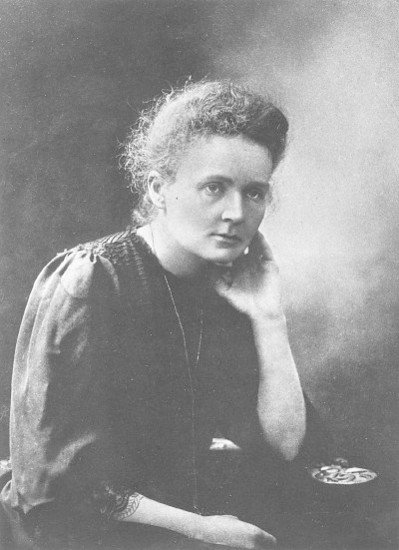Marie Curie (1867–1934), the fifth child of a Warsaw teacher’s family, begins to study science in Paris in 1891. She overcomes a great deal of opposition in a male-dominated field. In her Ph.D. dissertation, she examines the rays emitted by uranium — discovered shortly before by Becquerel — using an ionization chamber in place of the photographic plates used previously. While looking for other elements that emit radiation, Curie first investigates thorium; then she examines pitchblende, a waste product of uranium mining, and discovers polonium and, ultimately, radium. For her pioneering work on radioactivity, a term she introduces in 1898, Marie Curie wins the Nobel Prize for Physics in 1903 together with her husband Pierre Curie and Henri Becquerel. In 1911, she is awarded the Nobel Prize for Chemistry for her ground-breaking work on radium.
Transmutation / Chemische Veraenderungen
[ Sitemap ]
[ info ] This website was created by the MPI for the History of Science.
 Scene
Scene


 1st Slide
1st Slide
 Branching Point
Branching Point
 Module: Transmutation / Chemische Veraenderungen
Module: Transmutation / Chemische Veraenderungen Sequence: 0.0. START
Sequence: 0.0. START Branching Point: Transmutation and Chemical Changes
Branching Point: Transmutation and Chemical Changes Slide: Fire Assaying
Slide: Fire Assaying Back
Back


